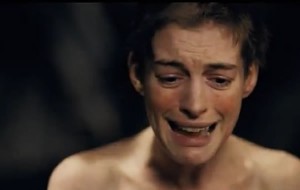Remember Susan Boyle? She went pretty far in the Britain’s Got Talent show back in 2009. But I recently was thinking about her and what heaven will be like, and realized there is something she teaches us about life, dreams, eternity, and heaven.
Watch this video before reading the rest of the post.
 Here is an article for more information about Susan Boyle:
Here is an article for more information about Susan Boyle:
Susan Boyle’s story is a parable of our age. She is a singer of enormous talent, who cared for her widowed mother until she died two years ago. Susan’s is a combination of ability and virtue that deserves congratulation.
So how come she was treated as a laughing stock when she walked on stage for the opening heat of Britain’s Got Talent 2009 on Saturday night?
The moment the reality show’s audience and judging panel saw the small, shy, middle-aged woman, they started to smirk. When she said she wanted a professional singing career to equal that of Elaine Paige, the camera showed audience members rolling their eyes in disbelief. They scoffed when she told Simon Cowell, one of the judges, how she’d reached her forties without managing to develop a singing career because she hadn’t had the opportunity. Another judge, Piers Morgan, later wrote on his blog that, just before she launched into I Dreamed a Dream, the 3000-strong audience in Glasgow was laughing and the three judges were suppressing chuckles.
It was rude and cruel and arrogant. Susan Boyle from Blackburn, West Lothian, was presumed to be a buffoon. But why?
Britain’s Got Talent isn’t a beauty pageant. It isn’t a youth opportunity scheme. It is surely about discovering untapped and unrecognised raw talent from all sections of society.
And Susan Boyle has talent to burn. Such is the beauty of her voice that she had barely sung the opening bars when the applause started. She rounded off to a standing ovation and – in her naivety – began walking off the stage and had to be recalled.
Susan, now a bankable discovery, was then roundly patronised by such mega-talents as Amanda Holden and the aforementioned Morgan, who told her: “Everyone laughed at you but no-one is laughing now. I’m reeling with shock.” Holden added: “It’s the biggest wake-up call ever.”
Again, why?
The answer is that only the pretty are expected to achieve. Not only do you have to be physically appealing to deserve fame; it seems you now have to be good-looking to merit everyday common respect. If, like Susan (and like millions more), you are plump, middle-aged and too poor or too unworldly to follow fashion or have a good hairdresser, you are a non-person.
I dread to think of how Susan would have left the stage if her voice had been less than exceptional. She would have been humiliated in front of 11 million viewers. It’s the equivalent of being put in the stocks in front of the nation instead of the village. It used to be a punishment handed out to criminals. Now it is the fate of anyone without obvious sexual allure who dares seek opportunity.
This small, brave soul took her courage in her hands to pitch at her one hope of having her singing talent recognised, and was greeted with a communal sneer. Courage could so easily have failed her.
Yet why shouldn’t she sound wonderful? Not every great singer looks like Katherine Jenkins. Edith Piaf would never have been chosen to strut a catwalk. Nor would Nina Simone, nor Ella Fitzgerald. As for Pavarotti But then ridicule is nothing new in Susan Boyle’s life. She is a veteran of abuse. She was starved of oxygen at birth and has learning difficulties as a result. At school she was slow and had frizzy hair. She was bullied, mostly verbally. She told one newspaper that her classmates’ jibes left behind the kind of scars that don’t heal.
She didn’t have boyfriends, is a stranger to romance and has never been kissed. “Shame,” she said. Singing was her life-raft.
She lived with her parents in a four-bedroom council house and, when her father died a decade ago, she cared for her mother and sang in the church choir.
Then, when a special occasion comes along, they might reach, as Susan did, for the frock they bought for a nephew’s wedding. They might, as she did, compound the felony of choosing a colour at odds with her skin tone and an unflattering shape with home-chopped hair, bushy eyebrows and a face without a hint of make-up. But it is often evidence of a life lived selflessly; of a person so focused on the needs of another that they have lost sight of themselves. Is that a cause for derision or a reason for congratulation? Would her time have been better spent slimming and exercising, plucking and waxing, bleaching and botoxing? Would that have made her voice any sweeter?
Susan Boyle’s mother encouraged her to sing. She wanted her to enter Britain’s Got Talent. But the shy Susan hasn’t been able to sing at all since her mother’s death two years ago. She wasn’t sure how her voice would emerge after so long a silence. Happily, it survived its rest.
She is a gift to Simon Cowell and reality television. Her story is the stuff of Hans Christian Andersen: the woman plucked from obscurity, the buried talent uncovered, the transformation waiting to be wrought.
It is wonderful for her, too, that her stunning voice is now recognised. A bright future beckons. Her dream is becoming reality.
Susan is a reminder that it’s time we all looked a little deeper. She has lived an obscure but important life. She has been a companionable and caring daughter. It’s people like her who are the unseen glue in society; the ones who day in and day out put themselves last. They make this country civilised and they deserve acknowledgement and respect.
Susan has been forgiven her looks and been given respect because of her talent. She should always have received it because of the calibre of her character.
The song she sings comes from Les Miserables, which may be one of the most hauntingly beautiful songs ever. Every time I watch the movie, I weep at the part of the movie where Fantine sings for her broken dreams.
 Here are the lyrics:
Here are the lyrics:
There was a time when men were kind,
And their voices were soft,
And their words inviting.
There was a time when love was blind,
And the world was a song,
And the song was exciting.
There was a time when it all went wrong…I dreamed a dream in time gone by,
When hope was high and life, worth living.
I dreamed that love would never die,
I dreamed that God would be forgiving.
Then I was young and unafraid,
And dreams were made and used and wasted.
There was no ransom to be paid,
No song unsung, no wine, untasted.But the tigers come at night,
With their voices soft as thunder,
As they tear your hope apart,
And they turn your dream to shame.He slept a summer by my side,
He filled my days with endless wonder…
He took my childhood in his stride,
But he was gone when autumn came!And still I dream he’ll come to me,
That we will live the years together,
But there are dreams that cannot be,
And there are storms we cannot weather!I had a dream my life would be
So different from this hell I’m living,
So different now from what it seemed…
Now life has killed the dream I dreamed…
Now why am I writing about all this here? What has so caught my attention about Susan Boyle and Fantine? Why does this song make me tear up?
Because this song, and Susan’s story, is the song of us all. Every person on earth has broken dreams, shattered hopes, lost loves. We all have a “Rosebud” (See the movie Citizen Kane). If you are like me, you often wish that life had a “do over” option. There are times and places in life you wish you could return to, but never can. There are grievous mistakes you made in life which you wish you could go back and undo. There are some memories you wish you could relive, and others you wish you could avoid.
And for many, I think that as life goes on, our list of things we wish we could have done, could have said, could have been, could have seen, gets longer and longer. This is why some people embark on their Bucket List.
But I sometimes think that in heaven, in our eternal life which begins after we leave this one, one of the things we will do for eternity is getting to do, go, be, and become all those things that we never got to experience in life. In the book, Safely Home, Li Quan wants to write and teach, but because he is a Christian living in Communist China, he spends most of his life running and hiding and fearing for his life. I don’t want to ruin the end of the book, but let me just say that at the end, his hopes and dreams are more than fulfilled.
Fantine sings this:
I had a dream my life would be
So different from this hell I’m living.
If you have unfulfilled dreams, shattered hopes, damaged relationships, know this: in the New Heavens and New Earth, part of the process of “wiping away every tear” will be, in my opinion, allowing Jesus to help you fulfill those dreams, achieve those hopes, and restore those relationships.
Heaven is not about sitting on clouds playing harps. It will be like this life, but without the pain, regret, and fear. Life will be what it was always meant to be.
You will learn to sing like Susan Boyle, or dance like a prima ballerina, if that is what you want.
You will train to climb that mountain, or write that book, if it sounds enjoyable.
You will laugh uproariously with that loved one.
You will sit and read and discuss theology with Moses, Paul, and Jesus, if that sounds like fun.
You will ride horses on the beach and be able to read their thoughts while doing so. You will lay down with a lion and let his purring lull you to sleep.
Creation was made to be our playground; not our hell. And in the new heaven and new earth, it will become our playground again. Heaven will be like Susan Boyle, with each of us finally getting to do what we were made for.



